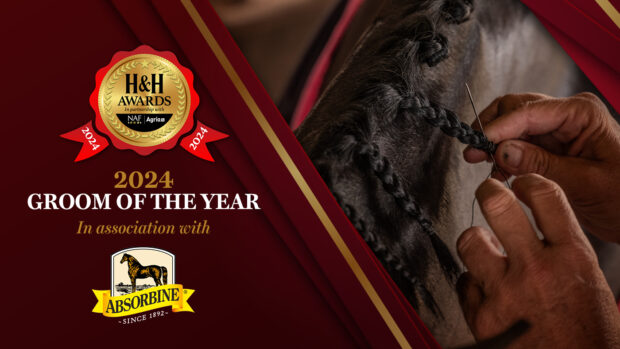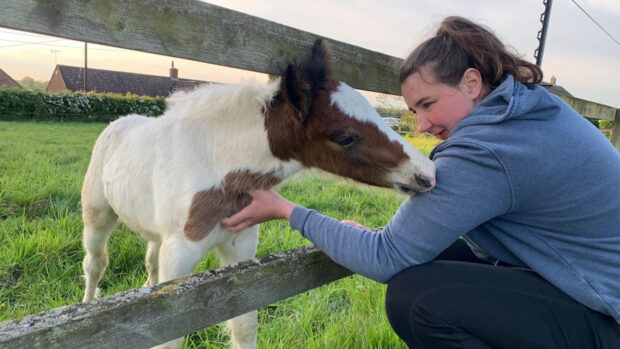Mucking out on cold winter mornings, many grooms dream of blue skies, warm sun and a change of lifestyle. If you have the experience or qualifications and want to work abroad, the dream can become reality.
Groom Alison Pocklington wanted to escape the British winter and enjoy some sunshine and travel. She used contacts to organise working holidays abroad.
“Everybody should do it,” says Alison. “Get out there and travel.”
Alison was put in touch with a trail-riding centre in Jamaica where she stayed for five months, teaching tourists and locals.
“Because of the heat, it’s a completely different daily routine,” she explains. “It hits you in the middle of the day so, for the sake of the horses, I’d ride in the morning, go to the beach in the afternoon, then come back to teach. It wasn’t what I was used to, but they kept telling me just to chill out.”
The Jamaicans had a laid back attitude to work, but all the horses were well cared for.
“I loved every minute of it, but after five months I came back to the UK — there just wasn’t enough to keep me there,” she explains. “I was very competitive and going to the beach every day was great, but I felt I wasn’t progressing.”
Alison later organised another working holiday in Brisbane. An extensive itinerary had been planned, involving stints in different yards around Australia. But a broken leg curtailed her plans.
“Again, I fancied some sunshine,” says Alison. “But because I was still recovering from injury, I ended up only staying for three months looking after a couple of laid-back dressage horses. It was a great way to recover, spending most of the day by the pool in the sun.”
Alison advises anyone wanting to work with horses abroad either to go through word of mouth, or check out adverts thoroughly.
“I know people who have taken up positions through an advert and it hasn’t been what they expected,” warns Alison. “Use your contacts.”
Sally Carter’s experience of working abroad was less successful. She loved working in a riding school and was progressing with her BHS exams, but got itchy feet and wanted to experience life beyond the rural area where she had grown up. An offer of work as an English family’s groom in Spain seemed an ideal opportunity.
“It wasn’t quite the all-expenses paid round-the-world holiday I dreamed of,” says Sally. “But it seemed like the next best thing, and also the challenge I was looking for.
“It was a huge culture shock,” she says. “The family, horses and situation were great, but all the things I wanted to get away from in Britain — the long hours, the rain and teaching clients all day — turned out to be the things I missed.”
She allowed a couple of months to settle in and stayed for six, before returning home.
“Looking back I think I was a bit naïve,” says Sally. “If I took up the position now, I’d probably love it and get far more out of it, but I think I was too young.”
Sally had never been away from home and had not really prepared herself for the reality of working abroad. Although she enjoyed working with the family’s horses, Sally missed the human interaction of a large yard.
“I didn’t have the opportunity to meet many people and, after a few weekends spent sightseeing and by the pool, the novelty wore off and I became bored,” she recalls. “My days were not structured and I lost my motivation being on my own most days.”
Sally speaks basic Spanish, but never felt confident in a social situation, so ended up “a bit of a hermit”.
“Visits from the vet were the worst — there was a lot of hand gesturing and pointing,” says Sally, who would still recommend working abroad, but suggests visiting the place and thinking seriously about the decision beforehand.
“My employers paid for three return flights back to the UK, which was very generous, but not all do and you can end up feeling isolated. I realise now a job with a family is not for me and the fact it was in sunny Spain was never going to change that,” she adds.
Any job involves change, but moving abroad intensifies that. It can be a very lonely experience, so it requires a lot of thought and research if your move is to be a success.
Join Horse & Hound’s NAGS
Membership of the National Association of Grooms and Students (NAGS) is free to all bona fide grooms and students. NAGS is sponsored by training provider KEITS, which offers Modern Apprenticeships, for those aged 16-25, as well as work-based training in equine, animal care and agricultural businesses.
Benefits of being a NAGS member include: Horse & Hound subscription at £1 per copy, £3 discount voucher on a sack of Blue Chip Dynamic, 10% discount on Splash Equestrian equipment and clothing, no P&P charges from Equestrian Vision mail order and eligibility for NAGS-only competitions and offers.
If you are interested in becoming a member, write to: NAGS, Room 2018, Kings Reach Tower, Stamford Street, London SE1 9LS (tel: 020 7261 6993), e-mail: nags@ipcmedia.com or click here to download an application form in PDF format.
And remember, the club is open to all students, not just those studying for an equine qualification.
SUBSCRIBE TO HORSE & HOUND AND SAVE Enjoy all the latest equestrian news and competition reports delivered straight to your door every week. Click here to subscribe now and enjoy 18 issues FREE
|




